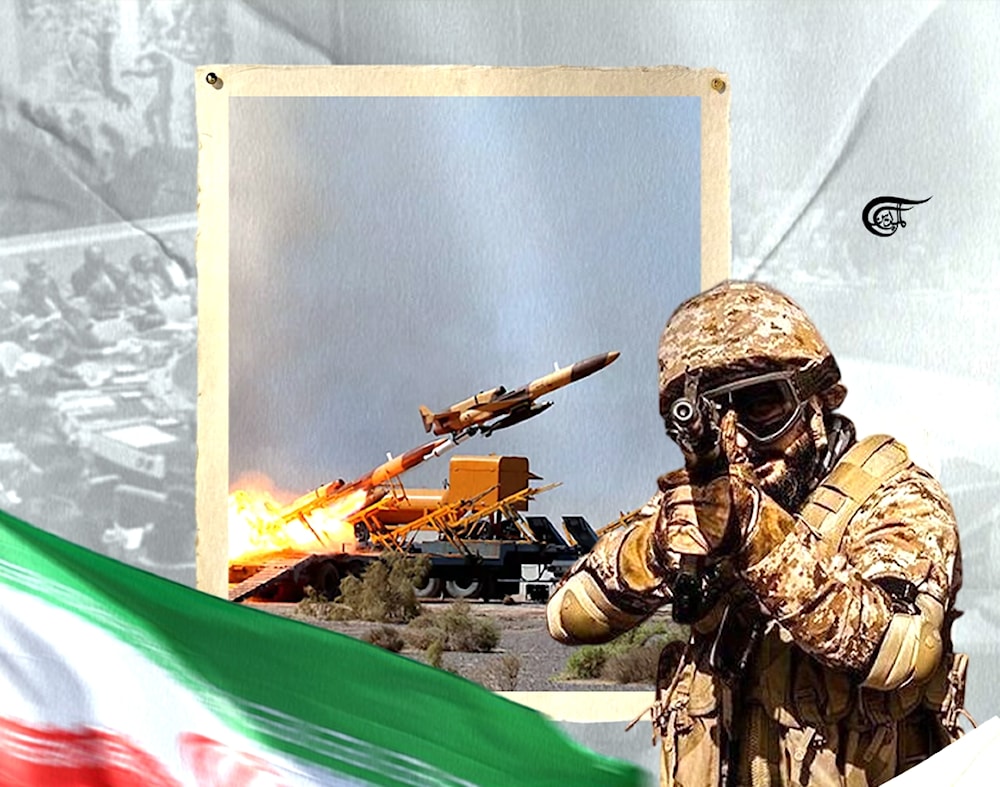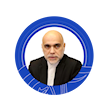The rise of Iran as regional power; its firm stance against pressure in negotiations
Iran's rise as a regional power has shaped its strategic approach, particularly in negotiations, where it has consistently refused to engage under threats or pressure.
-

Time is on Iran's side, and it does not need to rush into agreements that compromise its long-term security interests (Illustrated by Batoul Chamas; Al Mayadeen English)
Over the past few decades, Iran has emerged as a significant regional power in the Middle East. Despite economic sanctions, geopolitical challenges, and external pressures, the country has managed to enhance its influence across various domains, including military, political, and economic spheres. This rise in regional power has shaped Iran’s strategic approach, particularly in negotiations, where it has consistently refused to engage under threats or pressure.
Iran’s regional influence: A multi-dimensional power
1. Military and strategic influence
Iran has built a robust defense infrastructure, relying on a combination of indigenous missile technology and drone capabilities. Through alliances with regional actors and the Axis of Resistance, Iran has established a deterrence strategy that allows it to counterbalance foreign military presence in the region.
Moreover, the development of Iran’s ballistic missile program and its expanding naval capabilities in the Gulf serve as critical elements of its defense doctrine. These advancements ensure that any direct military confrontation with Iran would come at a significant cost to its adversaries.
2. Political and diplomatic leverage
Iran’s influence extends beyond military strength. The country has played a crucial role in regional diplomacy, positioning itself as a key player in conflicts and resolutions across the Middle East. Its positive and constructive role in regional equations demonstrates its ability to shape political outcomes and maintain a strategic depth that deters external intervention.
Additionally, Iran’s membership in international organizations such as the Shanghai Cooperation Organization (SCO) and its growing ties with Russia and China reinforce its position as a global player, limiting the effectiveness of Western isolation tactics.
3. Economic resilience and alternative alliances
Despite years of sanctions, Iran has developed economic strategies to bypass restrictions, including expanding trade with neighboring countries, strengthening partnerships with China and Russia, and developing domestic industries. The Iran-China 25-year strategic agreement and Russia-Iran economic collaborations highlight Tehran’s ability to counter Western economic pressure by diversifying its partnerships.
Why Iran refuses to negotiate under pressure
Iran’s strategic calculations are based on its negative historical experiences regarding the West's broken promises and hostile policies toward Iran.
Iran will never accept negotiations under pressure, threats and sanctions because it believes that negotiations should be based on mutual understanding, respect, dignity, and authority.
Several factors explain why Iran refuses to negotiate under coercion:
1. Failure of maximum pressure policy
The US “maximum pressure” policy, initiated during the Trump administration, aimed to force Iran into submission through severe sanctions. However, instead of capitulating, Iran expanded its peaceful nuclear program, increased its regional influence, and deepened its strategic partnerships. This outcome demonstrated that pressure tactics are ineffective in altering Iran’s core policies.
2. Historical precedents, lessons learned
Iran has gained valuable experience from diplomatic engagement with the West and the United States that they are not trustworthy, particularly the 2015 nuclear deal (JCPOA). While Iran complied with the agreement, the US withdrawal in 2018 reinforced Tehran’s belief that Western commitments are unreliable. As a result, Iran insists on negotiations based on mutual respect rather than coercion.
3. National sovereignty, strategic patience
Iran’s political doctrine is heavily influenced by the concept of "strategic patience".
Time is on Iran's side, and it does not need to rush into agreements that compromise its long-term security interests. This approach has allowed Iran to strengthen its regional position while waiting for more favorable diplomatic conditions.
If Iran were to negotiate under pressure, it would set a precedent that external threats can dictate its policies. Such a move would weaken its credibility both domestically and regionally, emboldening adversaries to use similar tactics in the future. By standing firm, Iran reinforces the message that diplomacy with Tehran must be based on mutual respect rather than intimidation.
Iran’s rise as a regional power is undeniable, and its refusal to negotiate under threats and pressure is a direct consequence of its strengthened geopolitical position. Military advancements, diplomatic leverage, and economic resilience have all contributed to Tehran’s confidence in shaping its own destiny. As history has shown, engagement with Iran requires recognition of its strategic interests rather than reliance on pressure tactics. If the international community and the United States seek meaningful dialogue, it must approach Iran with respect, acknowledging its role as a pivotal player in the Middle East.

 Ashkan Mombeini
Ashkan Mombeini
 4 Min Read
4 Min Read










